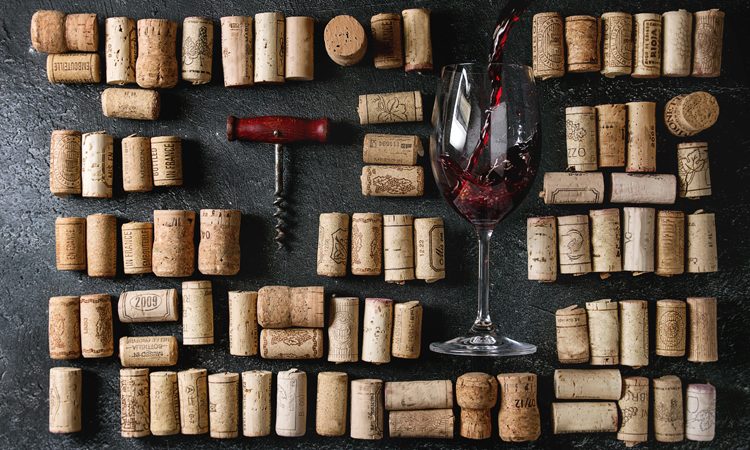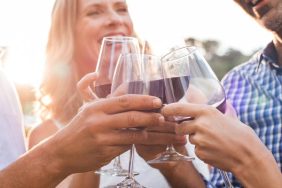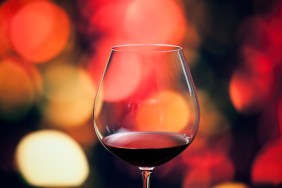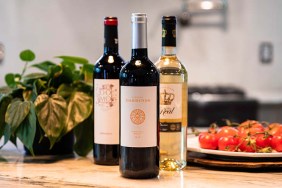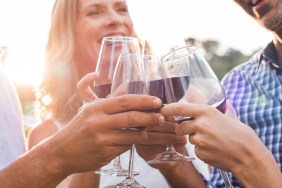Photo: Reda&Co (Getty Images)
The wine gods have spoken and not all organic wines are created equal.
Consider this: more than half of all wine available in the U.S. is produced by just three major wine conglomerates. And while these mega-corps have made an art form of designing rustic little labels and writing astoundingly quaint copy, it’s impossible to produce wine on such a scale without using a bunch of hangover-inducing shortcuts.
Shortcuts like: deadly pesticides, added chemicals, sulfates, sugars, preservatives, coloring, synthetic yeast, oak chips, and yes…water (topping bottles off like we did our uncle’s gin). And because wine producers aren’t required to label what’s actually inside their bottles, you have no idea what you’re putting in your mouth!
Fear not! We’ve compiled a shortlist of organic and biodynamic options that take the long road to deliver a clean, natural wine that will leave you shouting delightful profanities out your window.
Beyond wines: Here’s Everything You Need To Stock Your Home Bar
Make it from scratch: Start 2019 Healthy-ish By Growing Your Own Cocktail Ingredients
Follow Mandatory on Facebook, Twitter, and Instagram.
Grape Wine List
8 Organic Wines You Will Love
-
Badia a Coltibuono 2016 Chianti Classico ($21, Italy)
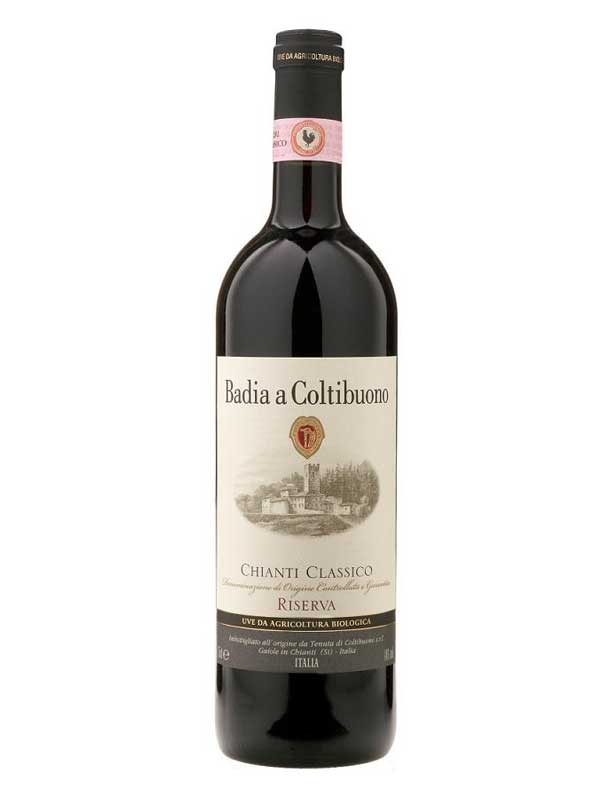
While incredibly hard to pronounce after a night of drinking, this economical little gem is the perfect introduction to organic wine. Raised in the “the Abbey of good harvest,” between Florence and Siena, this medium dark Sangiovese blend delivers a balanced, mildly spiced mouth cleanser, with notes of wild cherry, earthy minerals, and supple tannins. Just say “Grazi!”
Photo: Badia a Coltibuono
-
Quivira Vineyards 2014 Fig Tree Sauvignon Blanc ($17-$20, Healdsburg, CA)

This award-winning wine comes from the Dry Creek Valley along the Russian River, north of San Francisco. Combining Traditional and Musque clones, this floral complex Blanc promises a surprisingly robust flavor, teasing subtle guava and passion fruit accents that revolve around a grassy, juicy melon center. One sip will make you quiver.
Photo: Quivira Vineyards
-
Domaine Zind-Humbrecht 2012 Reisling ($28, France)

Hailing from the cooler climes of Alsace in the northeastern corner of France, this wine takes its roots from German viticulture. Riesling is widely considered the finest white varietal in the world. Like Natalie Portman in the prelude to The Darjeeling Limited, this wine is lithe and crisp, balanced between a sweetness and acidity that rides the tongue all the way down the gullet.
Photo: Domaine Zind-Humbrecht
-
Frey Vineyards 2016 Biodynamic Zinfandel ($19, Redwood Valley, CA)

Envision Tony Soprano: rich, raucous, heavy, often paired with hearty pastas, and subject to spells of wooziness. Frey Vineyards was the first in the country to go certified organic all the way back in 1980. Pioneers of the organic movement, Frey have remained true to their original vision and continue to churn out a respectable vino. Get drunk on history.
Photo: Frey Vineyards
-
Chateau de la Roche aux Moines 2016 Clos de La Bergerie ($50, France)

Like a sunny day in Portland, this wine is dry and unusual—and wholly biodynamic. Based on the work of Rudolf Steiner, biodynamic viticulture handles agriculture from a holistic stance, using natural farming and harvesting methods, with an emphasis on total soil health, even considering the phases of the moon. This level of respect for the language of terroir produces outstanding results in this Chenin Blanc: sweet, potent, assertive, and bone dry, with a honey peach nose, and full-bodied finish. Nicolas Joly, the agricultural wizard behind this bottle, quit his banking job to play with grapes in the dirt. That’s a story worth toasting.
Photo: Chateau de la Roche aux Moines
-
Bruno Paillard Premiere Cuvee ($50 Reims, Champagne)

It’s bubble time! Start your night off right with this aperitif from a young, modern Champagne house practicing sustainable viticulture. Made from a high percentage of first-pressing Chardonnay, the journey of the ensuing flavors is a wild ride from tart citrus to banana and toasted bread, with a finish cleaner than the bubble bath you should drink it in. Who said Champagne was only for special occasions? Pop the cork—you deserve it.
Photo: Bruno Paillard Premiere Cuvee
-
David Leclapart 2013 L’Artiste Blanc De Blancs ($95, Trepail, Champagne)

They say this wine has outstanding persistence. We don’t know what that means, but you should drink it and see for yourself. Made from 100 percent Chardonnay, this bottle boasts transparency from vine to glass, meaning that when you partake of it, you instantly feel as if you are lying naked on a warm grassy hillside, spooning a man-sized grape named David, as you enjoy the clear fall dusk over Reims.
Photo: David Leclapart
-
1990 Champagne Fleury Vintage Brut ($145-priceless, Courteron, Champagne)

The godfather of biodynamic Champagne, Jean-Pierre Fleury was the first to bring this practice to the famous region. “The key is soil health,” son Jean-Sebastien Fleury says. “We must keep the earth healthy. The structure of the soil gives back the essence of the terroir.” It’s poetry in a glass, and that is what it’s all about. Quantum Leap yourself back to the early '90s and save the day by having yourself one of the best organic, 100 percent Pinot Noir champers in the world. Nowadays, sadly, you will be hard-pressed to find a bottle of this most exquisite showing.
If beer is proof that God loves us and wants us to be happy, then great wine is proof that God himself is imbibing.
Photo: Champagne Fleury
